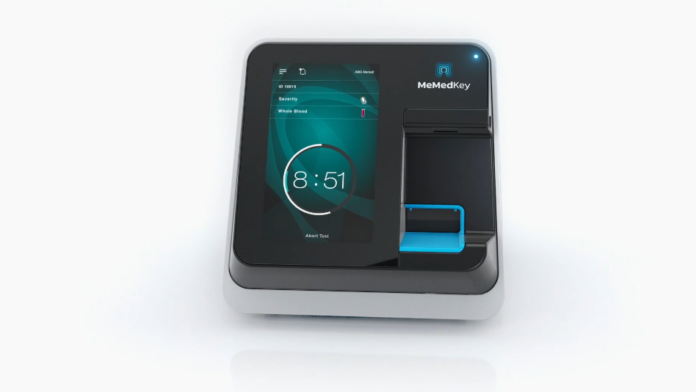ANDOVER, Mass. & HAIFA, Israel– MeMed, a leader in the emerging field of advanced host response technologies, today announced that the FDA has granted Breakthrough Device Designation (BDD) to its innovative MeMed Severity™ test. This designation underscores the transformative potential of MeMed Severity to advance the management of patients with suspected acute infections and suspected sepsis by empowering clinicians with timely, data-driven, clinical insights.
Building on the scaling adoption of the FDA-cleared MeMed BV® test, which redefines how clinicians differentiate between bacterial and viral infections, MeMed Severity aims to aid clinicians in rapid risk stratification and predicting disease progression, in conjunction with clinical assessments and other laboratory findings.
The test is based on advanced host-response technology that measures multiple proteins from a blood sample and uses machine learning to stratify the risk of a patient with a suspected acute infection deteriorating to severe outcomes within 72 hours or death within 14 days. Designed for emergency department settings, it has the potential to support critical decisions on triage, treatment, and optimized patient disposition – for example, assisting clinicians in identifying who could benefit from escalated care and who might be safely discharged from the hospital.
With easy-to-interpret results in under 15 minutes, compatibility with high-throughput analyzers and minimal blood volume requirements, MeMed Severity will integrate into clinical workflows, driving value for both care providers and patients. The BDD accelerates MeMed Severity’s path to market, supporting reimbursement strategies, and ensuring that this critical tool reaches healthcare providers as quickly as possible.
Beat Müller, M.D., Professor of Medicine, University of Basel, said: “Managing patients with suspected sepsis is a race against time, where fast and accurate risk assessment is essential. Conventional tools of clinical routine even in top-class hospital centers often lack predictive accuracy, contributing to alert fatigue while missing subtle, life-threatening cases. The FDA’s BDD for MeMed Severity underscores the need for innovative prognostic technologies that not only assess the present but also predict deterioration, enabling timely and informed care decisions. With rapid results and seamless workflow integration, such advancements have the potential to transform sepsis management and significantly improve patient outcomes.”
Eran Eden, Ph.D., CEO and Co-Founder of MeMed, said: “Our vision is to revolutionize diagnostics and improve patient outcomes globally. The FDA’s BDD for MeMed Severity validates our commitment to addressing critical healthcare challenges with novel host-response technologies. We are grateful for the FDA’s commitment to collaborate with MeMed during its rigorous development process to create a test capable of filling a critical gap in sepsis management, equipping clinicians with valuable insights to improve care and save lives.”


